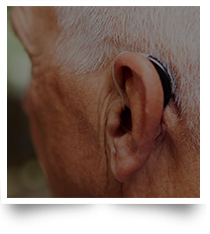Allergy
Rocky Mountain Allergy Center offers a full range of allergy testing and treatment for our patients who have underlying allergies.
Allergy tests include skin testing for environmental allergies such as pollen, molds and animals as well as blood testing for food allergies. Once it has been determined by our doctors that therapy will benefit you, immunotherapy, also known as desensitization therapy, is available using shots or sublingual drops. Our allergy nurses and technicians are trained through the AAOA and Pan American Allergy Society.
Appointments are necessary, please call to make an appointment.
Approximately 20% of the U.S. population has one or more types of allergies. Allergy symptoms account for more visits to the doctor’s office than any other single disease and are a leading cause of school absenteeism in this country. Allergies are abnormal physical reactions you experience when you are exposed to substances (allergens) to which you have developed an allergy. These substances are usually harmless and do not produce symptoms in normal,nonallergic people.
Your body produces antibodies to ward off infection and other diseases. When your immune system mis-identifies a normally harmless substance, it begins building antibodies toward that specific substance. These antibodies in your blood trigger allergic symptoms when you are re-exposed to that substance. Measurement of these antibodies is the key to effective allergy diagnosis and treatment.
The air you breathe contains minute particles. The type of particles in the air will vary according to your location, the time of year, and moisture in your environment. Common causes of inhalant allergies are: Plant pollens (trees,weeds, grasses) – House Dust particles – Mold Spores – Animal Hair & Dander – Insect particles. Foods you eat can also cause allergic reactions but usually produce different symptoms. Substances you touch can cause allergic reactions and are usually evident in the form of a rash on parts of your body.
The tendency to become allergic can be inherited. Studies show if one of your parents had allergies, you have a 50% chance of becoming allergic. If both of your parents were allergic, your chance of developing allergies is as high as 80%.
Treatment
The best treatment for allergies is to identify the offending substances then carefully avoid exposure to them. This can be very effective for allergies to things like pets and foods, but is not possible for some allergies such as pollens, mold spores, and house dust. Medications such as antihistamines, oral decongestants, nasal sprays, and bronchodilators may be effective in controlling your allergic symptoms. Medications may be used along with immunotherapy. Immunotherapy, commonly referred to as “allergy shots” is a program designed to desensitize you to those substances to which you are allergic. A repeated injection of a sterile mixture (of those substances identified as causes of your allergies) allows your immune system to build up protection against them.
After several months of weekly injections of increasingly stronger doses, you will reach a maintenance dose and continue to receive that dose at regular intervals. The size of doses and length of intervals between doses depends greatly on your response to the injections. Some people will receive complete symptom relief by taking allergy shots.
An ongoing program of avoidance, medication, immunotherapy, or a combination of these methods, under the direct supervision of your doctor, is the best approach to controlling your allergies and allowing you to live more comfortably in your existing surroundings.
Patient Resources
The following documents are strictly for informative purposes and can be printed and kept for your files:
Note: These files are in PDF format. If you do not have Adobe® Reader® on your computer, you can download it for free by clicking here or on the Get Adobe Reader icon.
- Pollen Allergies
- Mold Allergies
- Desensitization: Allergy Shot vs. Sublingual Drop Immunotherapy
- General Allergy Information
- Animal and Dust Mite Allergies







